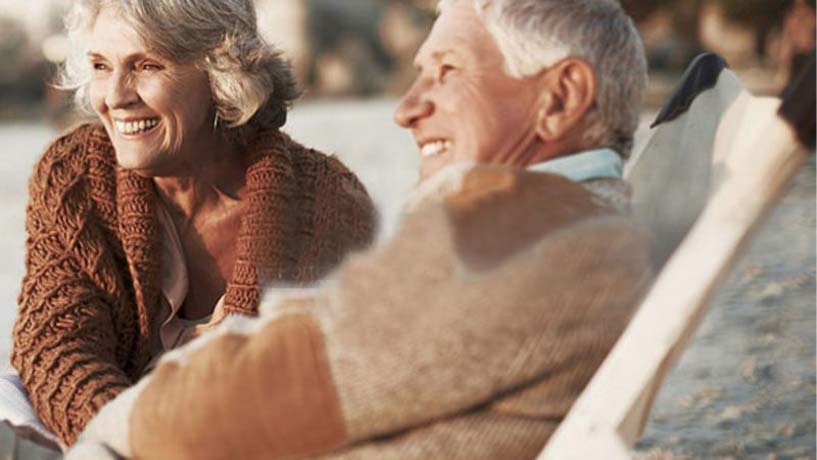Using medical appliances for your stoma and continence needs should not affect your ability to lead a normal life and that includes travel. Below are some handy tips for you to consider when travelling with a stoma.

Planning ahead
- Remember that luggage in the hold can get lost in transit. It is worth spreading your items between yours and your travelling partners’ cases to ensure that, if one case is misplaced, you will still have goods available to you.
- Prepare a checklist of products and items you need to take with you. These will include the products you normally use as well as dry wipes and disposal bags. You can keep these items in a small travel kit, so that you have your appliances and accessories to hand.
Flying with a stoma
- Before travelling, you will need to check with your airline their policy for carrying these items in your luggage, as Customs and Security officials may ask you questions about the appliances.
- Obtain a note from your GP stating you need to carry some essential products in your hand luggage. Fittleworth can send a
Travel Certificate that explains why you have the appliances.
- When you travel by air, carry some supplies in your hand luggage. Scissors and sharp objects are not allowed in your hand luggage, so if you need a stoma pouch cut-to-fit, make sure you take pre-cut pouches with you.
- The rules on what is allowed in your hand luggage can and do change. Keep liquids in smaller bottles (less than 100ml capacity) and do make sure that any adhesive removers are non-flammable. Product samples are often smaller than normal prescription items which you may find helpful. For more information please contact our Customer Service team.
- Try to use the toilet before boarding the plane and before meals when it is likely to be less busy. When booking, ask for an aisle seat near the toilet if possible.
Travelling by car or rail
- After any medical procedure you should not drive until your doctor advises you can resume. You must be able to do an emergency stop, to reverse and be alert for the whole time you are driving.
- Check with your insurer about any changes in your medical condition to ensure you are covered should an accident occur. If you are unsure about the disclosure of information to your motor insurer, discuss this with your GP or specialist nurse.
- As an ostomist you may find it more comfortable when driving to use a special attachment to your seat
belt. This releases tension around your hip bone but tightens automatically when necessary. These are available from most motoring accessory shops.
- If you use a drainable bag, you may find it helpful when making a long journey to carry a night bag in the vehicle. This will be helpful if you get stuck in a traffic jam and cannot get to a toilet.
Travelling by sea
- Travelling by sea means you should not have as many problems as other forms of travel. Ships are more spacious and have more accessible facilities.
- Make sure you know where the toilets are located so that you can get to them quickly if you need to. They may be on a different deck in some instances.
- If you are travelling on a cruise ship, make sure you know where the medical room is and how to contact the on-board GP in case of medical emergencies.
RADAR keys
RADAR operates a key scheme to enable access to disabled toilets throughout the UK. You can obtain a RADAR key by calling 0800 378 846 or ask our Customer Service team for more information.
Ostomy travel certificate
Fittleworth produces a handy pocket-sized leaflet which explains, in various languages, what your ostomy appliances and medications are for and why you are carrying them.
This can help to avoid awkward questions at customs checkpoints. It also ensures that any form of examination takes place in complete privacy. These are available free of charge to customers, simply request one from our Customer Service team or register as a new patient.
Free emergency medical treatment abroad
If you are travelling within the EU there are reciprocal agreements which entitle you to free emergency treatment while abroad. To claim this you can apply for a European Health Insurance Card (EHIC), which replaced the E111 form.
This card entitles the holder to state-provided medical treatment. To find out more and to register for a card, call 0845 606 2030 or visit www.ehic.org.uk. You may also be able to receive free or subsidised healthcare if you are travelling outside the EU provided that the country in question has a reciprocal healthcare agreement with the UK.
There are many countries which offer this including Australia, Barbados and New Zealand. The rules vary from country to country, and you will need to provide proof of your status as a UK resident such as your passport or driving licence. For a full list of countries and the different rules for each, visit www.nhs.gov.uk/healthcareabroad.
WORLD ASSIST ALLIANCE
Fittleworth is an exclusive UK member of the World Assist alliance: a service that assists people whilst abroad with emergency supplies of stoma bags and catheters in certain countries.
This service does not send supplies to your destination ahead of your arrival, nor does it send an emergency supply from the UK to where you are staying. Emergency products are obtained from a supplier within the country you are staying in, and these products may not be the same but similar to those you are using.
How World Assist Alliance Works
Simply call your normal Fittleworth contact number with your details and we will do the rest.
Terms and Conditions apply, please see our leaflet for full information, or contact our World Assist Alliance Customer Services team on 01903 731244.
Download our leaflet
Travel Advice (440 KB)
